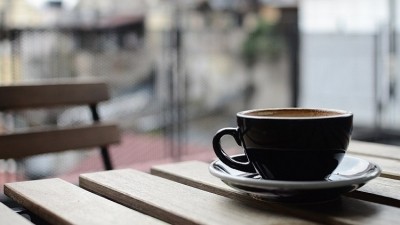How the likes of Wetherspoon think green when it comes to fish

In 2018, 70% said we should be prepared to switch to a different species if it were more sustainable, up from 68% in 2016.
You could call it the Blue Planet effect. And it’s playing out on the fish menus of Britain’s pub and restaurant trade. Last October, the seafood sold in the JD Wetherspoon estate won MSC accreditation, in what MSC senior commercial manager George Clarke called “a tremendous milestone for the foodservice industry”.
A lack of understanding
More could be on the way. Mitchells & Butlers says the ‘majority’ of its suppliers operate to MSC, the Aquaculture Stewardship Council and Global GAP standards, and is due to publish a review of its fish sourcing this spring.
Marston’s says ‘further work’ is under way to encourage discussions between its suppliers and sustainable accreditation bodies.
But what does all this mean? Is there really any way for busy pub operators, restaurateurs and chefs to ensure the fish they are serving is sustainable? Do punters really care?
And, with the MSC having recently stripped British mackerel of its sustainable status, how can operators ensure they stay ahead of changes in the market?
“It is a minefield,” says Andy Gray, trade marketing manager at Seafish, the Defra quango that represents the British seafood industry.
“People use so many different parameters when they talk about sustainability, so there is still a lack of understanding about what it actually means. There is an opportunity for pubs and restaurants to end the confusion.”
Varieties of species
It’s easy to see why there’s so much confusion. When it comes to meat, choice is limited to beef, pork, poultry, game or a handful of other species, what cut it is, whether it is organic or not and occasionally variety of species (such as Hereford beef or Mangalista pork). Therefore, it’s relatively easy to understand.
The majority of fish dishes served in British pubs and restaurants feature one of the big five: cod, haddock, salmon, prawns or tuna.
There may be only one known species of haddock and three of cod, but there are at least nine commercially important salmon species, 15 tuna and dozens of prawn species. Some are in plentiful supply, others aren’t. They can be sourced from fisheries all over the world, all with different statuses.
No wonder there’s confusion. Gray points out that British waters are well stocked, so buying British should be the starting point for any landlord looking to ensure the fish they serve is sustainable.
The MSC says that all three species of Britain’s favourite fish, cod, are sustainable, so long as they are from fisheries assessed to the body’s fisheries standard.
“All British fish is strictly controlled so it is safe to know that stocks are fine,” says fishmonger and owner of Dulwich fish restaurant Next Door Robin Moxon.
“But people remember headlines. People still come and ask me what they can eat instead of cod because they think there’s none left in the sea. But the truth is it’s cheap and plentiful and always has been.”
There are ways to reassure punters though. “Easily, the best place to start is with MSC and their excellent online resources,” says Calum Richardson, founder of The Bay Fish & Chips in Stonehaven, Aberdeenshire, which markets itself on its sustainable sourcing.
“The MSC is a real authority on what’s sustainable and checking in with them is a no-brainer for restaurants who want to serve sustainable fish. MSC will guide you on what’s available locally, as well as what’s in season.
“While our fish stocks will ebb and flow with natural cycles, we have to be proactive in championing fresh, seasonal fish from future stocks, and encouraging our customers to really taste that difference, even if it costs a little more.”
High price point
This is a crucial point. “MSC-certified fish costs me between eight and 12% more than non-certified fish – that’s roughly an extra £20,000 to £30,000 more a year,” says Andrei Lussmann, MD of the five-strong Hertfordshire restaurant chain Lussmanns Sustainable Fish & Grill. Despite the cost, this month (April) Lussmann launched his first 100% MSC certified fish menu.
“If I add the cost of sourcing MSC-certified fish onto our prices, people will tell me it’s too expensive so instead we try to absorb the cost and get more bums on seats by shouting about the fish we serve.
“We started selling free-range chicken, organic meat and sustainably sourced fish because it is the right thing to do, but running a commercially sustainable and ethical business is tough. I am under constant pressure from the board about the cost.”
You might think the clientele of independent restaurants in the Home Counties are probably more likely to be attracted by claims of sustainability than punters in your local chain pub, but a spokesman for JD Wetherspoon says the issue is of growing importance to the pub chain’s regulars too.
“True, some customers may not be thinking about that when relaxing down the pub, so we do the work for them,” he says.
“We think sustainability of products like cod and haddock is important, which is why we use MSC-certified sustainable cod and haddock. Some customers do ask us about sustainability. It is becoming an increasingly topical subject.”
Particularly given that the MSC stripped Britain’s biggest haul mackerel of its sustainable status in March.
“When a species loses its accreditation, it’s a major problem for us,” says Lussmann. “We need the volume and variety so we can keep our customers happy while maintaining our sustainable credentials.”
Frozen for the future
But all is not lost on the mackerel front. Herring and sardines can be a good substitute for mackerel if push comes to shove, but Seafish’s Gray says sustainable mackerel is far from off the menu.
“Mackerel is a species caught in very short fishing seasons and much is frozen for future use,” he explains. “The fish is accredited when caught and then frozen, meaning it’s unlikely there will be any shortage of certified fish for some time to come.”
The MSC is currently reviewing its decision on mackerel after representations from the fishing industry.
Gray adds that demand for fish dishes in the eating-out market continues to grow. If the sustainability of our stocks can be maintained, that growth will be assured for coming years.



